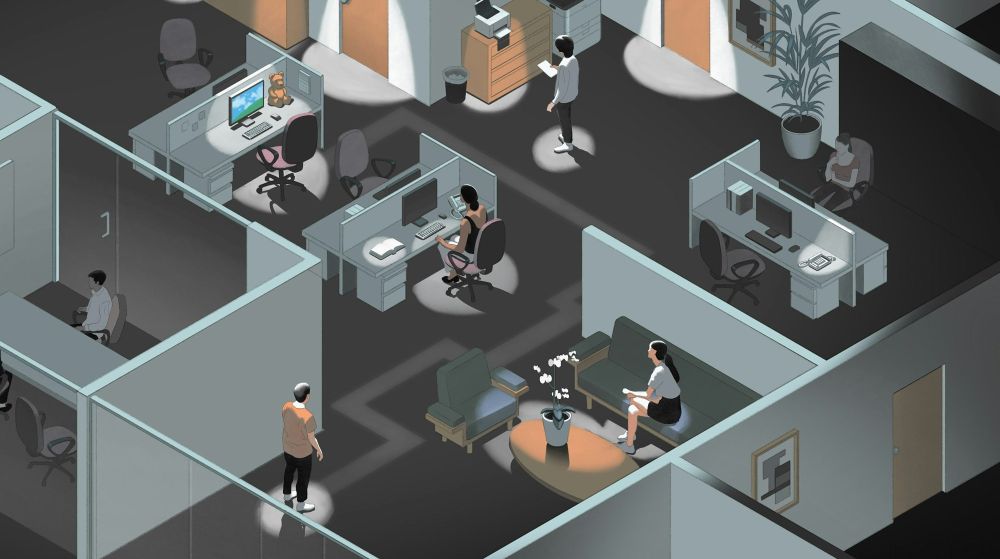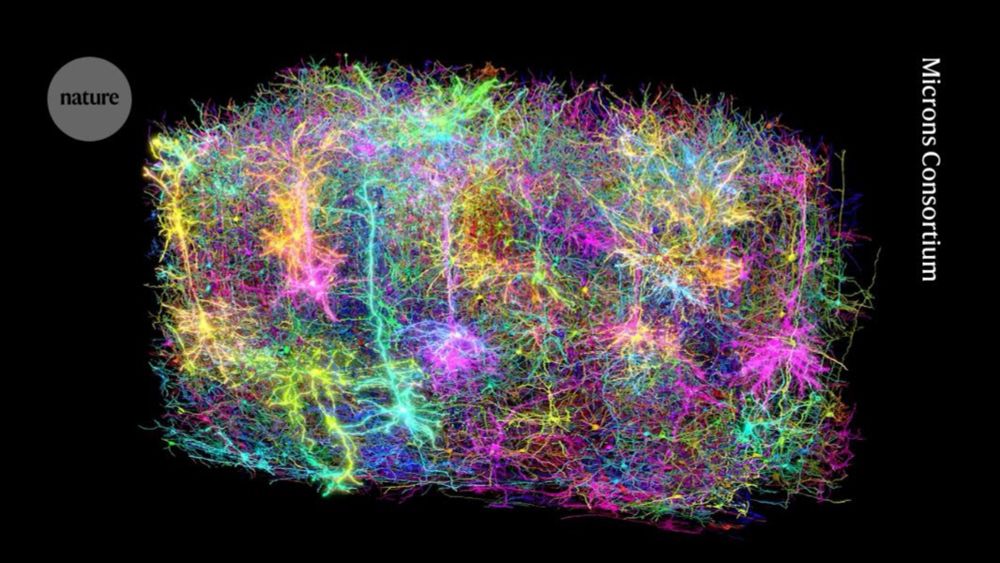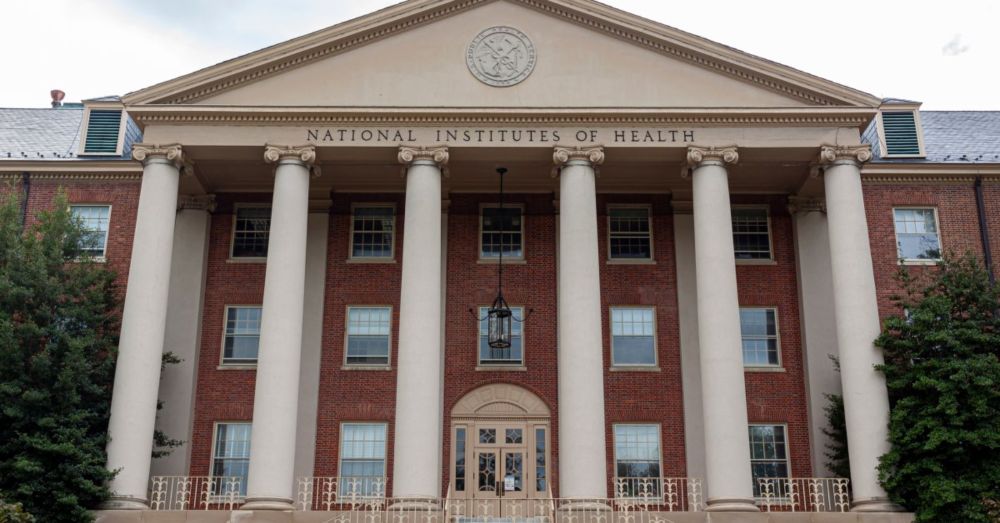Andreas Tolias
@andreastolias.bsky.social
Stanford Professor | NeuroAI Scientist | Entrepreneur working at the intersection of neuroscience, AI, and neurotechnology to decode intelligence @ enigmaproject.ai
Deeply grateful to the @simonsfoundation.org for launching SCENE and thrilled to join this 10-year journey into ecological neuroscience—unraveling how sensory and motor systems interact. Excited to collaborate with an incredible team of theorists and experimentalists working across species!
We are excited to announce our new Simons Collaboration on Ecological Neuroscience (SCENE)! This program will unite experts in experimental and computational #neuroscience approaches to investigate how the brain represents sensorimotor interactions. www.simonsfoundation.org/2025/04/24/s... #science

Simons Foundation Launches Collaboration on Ecological Neuroscience
Simons Foundation Launches Collaboration on Ecological Neuroscience on Simons Foundation
www.simonsfoundation.org
April 25, 2025 at 4:17 PM
Deeply grateful to the @simonsfoundation.org for launching SCENE and thrilled to join this 10-year journey into ecological neuroscience—unraveling how sensory and motor systems interact. Excited to collaborate with an incredible team of theorists and experimentalists working across species!
Reposted by Andreas Tolias
In Lurz et al., ICLR 2021 we did quite some analysis on scaling and generalization across animals in the context of visual response prediction (incl. behavioral modulation) with @sinzlab.bsky.social and @andreastolias.bsky.social: openreview.net/forum?id=Tp7...

Generalization in data-driven models of primary visual cortex
Deep neural networks (DNN) have set new standards at predicting responses of neural populations to visual input. Most such DNNs consist of a convolutional network (core) shared across all neurons...
openreview.net
April 18, 2025 at 1:40 PM
In Lurz et al., ICLR 2021 we did quite some analysis on scaling and generalization across animals in the context of visual response prediction (incl. behavioral modulation) with @sinzlab.bsky.social and @andreastolias.bsky.social: openreview.net/forum?id=Tp7...
A super exciting paper by @aecker.bsky.social and Marissa Weis, part of the #MICrONS package, deriving a set of principles to characterize the morphological diversity of excitatory neurons across cortical layers.
www.nature.com/immersive/d4...
www.nature.com/immersive/d4...
April 15, 2025 at 11:37 AM
A super exciting paper by @aecker.bsky.social and Marissa Weis, part of the #MICrONS package, deriving a set of principles to characterize the morphological diversity of excitatory neurons across cortical layers.
www.nature.com/immersive/d4...
www.nature.com/immersive/d4...
Reposted by Andreas Tolias
MICrONS represents a huge step forward for the field. Big-data and AI will drive the next wave of discoveries in neuroscience
After 7 years, thrilled to finally share our #MICrONS functional connectomics results!
We recorded activity from ~75K neurons in the visual cortex of a single mouse, then mapped its wiring using electron microscopy.
nature.com/immersive/d42859-025-00001-w/index.html
We recorded activity from ~75K neurons in the visual cortex of a single mouse, then mapped its wiring using electron microscopy.
nature.com/immersive/d42859-025-00001-w/index.html

The MICrONS Project
An unprecedented dataset of high resolution anatomical images of individual cells in mouse visual cortex, mapped on to their responses. This integrated view of function and structure lays a foundation...
nature.com
April 13, 2025 at 6:48 PM
MICrONS represents a huge step forward for the field. Big-data and AI will drive the next wave of discoveries in neuroscience
Reposted by Andreas Tolias
Join me, @andreastolias.bsky.social, and many of the incredible MICrONS team members in an AI-driven approach to neuroscience discovery
Apply here: www.linkedin.com/jobs/view/42...
Or email us at [email protected]
Apply here: www.linkedin.com/jobs/view/42...
Or email us at [email protected]

Enigma hiring Research Engineer: Multi-Modal Modeling in Stanford, CA | LinkedIn
Posted 11:42:35 PM. The modeling team at Enigma is seeking ML Research Engineers to build and scale the next generation…See this and similar jobs on LinkedIn.
www.linkedin.com
April 13, 2025 at 6:48 PM
Join me, @andreastolias.bsky.social, and many of the incredible MICrONS team members in an AI-driven approach to neuroscience discovery
Apply here: www.linkedin.com/jobs/view/42...
Or email us at [email protected]
Apply here: www.linkedin.com/jobs/view/42...
Or email us at [email protected]
After 7 years, thrilled to finally share our #MICrONS functional connectomics results!
We recorded activity from ~75K neurons in the visual cortex of a single mouse, then mapped its wiring using electron microscopy.
nature.com/immersive/d42859-025-00001-w/index.html
We recorded activity from ~75K neurons in the visual cortex of a single mouse, then mapped its wiring using electron microscopy.
nature.com/immersive/d42859-025-00001-w/index.html

The MICrONS Project
An unprecedented dataset of high resolution anatomical images of individual cells in mouse visual cortex, mapped on to their responses. This integrated view of function and structure lays a foundation...
nature.com
April 10, 2025 at 11:46 PM
After 7 years, thrilled to finally share our #MICrONS functional connectomics results!
We recorded activity from ~75K neurons in the visual cortex of a single mouse, then mapped its wiring using electron microscopy.
nature.com/immersive/d42859-025-00001-w/index.html
We recorded activity from ~75K neurons in the visual cortex of a single mouse, then mapped its wiring using electron microscopy.
nature.com/immersive/d42859-025-00001-w/index.html
Reposted by Andreas Tolias
Eva Dyer and I wrote an opinion piece for @thetransmitter.bsky.social on why neuroscience needs to embrace complexity and accept the "bitter lesson" by using a data-driven regime at scale.
With commentary from several wonderful researchers!
🧠📈 #NeuroAI 🧪
With commentary from several wonderful researchers!
🧠📈 #NeuroAI 🧪
How can we make progress in developing a general model of neural computation rather than a series of disjointed models tied to specific experimental circumstances, ask Eva Dyer and @tyrellturing.bsky.social in the latest entry in our NeuroAI series.
www.thetransmitter.org/neuroai/acce...
www.thetransmitter.org/neuroai/acce...

Accepting “bitter lesson” and embracing brain’s complexity
To gain insight into complex neural data, we must move toward a data-driven regime, employing large models trained on vast amounts of data. Experts weigh in.
www.thetransmitter.org
March 26, 2025 at 5:20 PM
Eva Dyer and I wrote an opinion piece for @thetransmitter.bsky.social on why neuroscience needs to embrace complexity and accept the "bitter lesson" by using a data-driven regime at scale.
With commentary from several wonderful researchers!
🧠📈 #NeuroAI 🧪
With commentary from several wonderful researchers!
🧠📈 #NeuroAI 🧪
Reposted by Andreas Tolias
What could large-scale AI do for neuroscience? What barriers prevent us from pursuing an AlphaFold for the brain? What are the limits of scale, and where will we need more tailored solutions? Eva Dyer and @tyrellturing.bsky.social ask nine neuroscientists to weigh in.
bit.ly/4iXjK3q
bit.ly/4iXjK3q

Accepting “bitter lesson” and embracing brain’s complexity
To gain insight into complex neural data, we must move toward a data-driven regime, employing large models trained on vast amounts of data. Experts weigh in.
bit.ly
March 28, 2025 at 6:08 PM
What could large-scale AI do for neuroscience? What barriers prevent us from pursuing an AlphaFold for the brain? What are the limits of scale, and where will we need more tailored solutions? Eva Dyer and @tyrellturing.bsky.social ask nine neuroscientists to weigh in.
bit.ly/4iXjK3q
bit.ly/4iXjK3q
Reposted by Andreas Tolias
I have been talking to the media, Time, Fortune, NBC, etc., to explain how the onslaught on science and NIH will impact the health of all Americans. Everyone knows someone who has cancer, heart disease, or depression. Spread the word about how cutting science impacts all.
time.com/7216299/nih-...
time.com/7216299/nih-...

Experts Call NIH Budget Cuts an 'Apocalypse' for Science
The reductions target indirect costs that cover administrative and equipment costs.
time.com
February 15, 2025 at 9:28 PM
I have been talking to the media, Time, Fortune, NBC, etc., to explain how the onslaught on science and NIH will impact the health of all Americans. Everyone knows someone who has cancer, heart disease, or depression. Spread the word about how cutting science impacts all.
time.com/7216299/nih-...
time.com/7216299/nih-...

